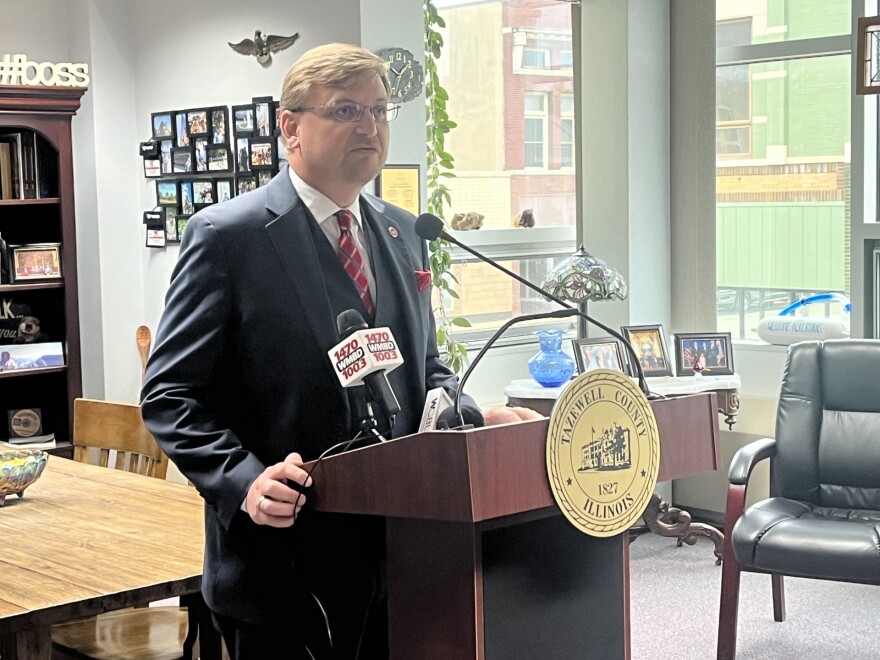Election procedures at the Tazewell County Clerk’s Office have received a major upgrade.
Clerk John Ackerman says a $361,250 grant from the Illinois State Board of Elections has enabled his office to purchase a new voter registration system and electronic poll books for every precinct in Tazewell County.
“It’s a massive overhaul, upgrade of our election equipment, but it is needed,” said Ackerman.
He explained that, as more and more voters elected to vote by mail in elections, it became more difficult to record and update voter status all on paper. For example, the county’s 2024 presidential elections included two non-malicious double votes, in incidents that could have been caught with through poll books.
With the electronic poll system, the software would stop issuing a second ballot.
“It should also be pointed out, we had already planned to make this transition one way or the other,” said Ackerman. “If we had not received the grant, we were going to put it into our capital budget for next year to purchase that.”
Ackerman said the grant means more than $300,000 will not have to be obtained from property tax.
“We can help lower the burden on Tazewell County taxpayers by not being required to utilize that revenue stream in order to make this massive upgrade of our election system,” he said.
Additionally, Ackerman said moving to electronic poll books represents a continuous future cost savings for the clerk’s office.
The software and tablets contain the entirety of a voter’s information: A copy of their signature, their address, what ballot style they should have and what elections they are voting in. Previously, that’s information that would need to be printed on paper, approximately 93,000 sheets per election.
“That’s all that toner, all of that time, assembling them, putting those together in booklet form to be sent out to each of the precincts,” said Ackerman. “All of that will be saved, so it will be a major financial and environmental savings of not having all that waste.”
Ackerman said the new software shouldn’t radically change the process for voters and provide further ease-of-use for the county’s poll workers.
According to Ackerman, the tablets shouldn’t present a cybersecurity concern for the county’s elections.
“The only time they’re being uploaded with information is when they are in our office, on a secured line, is the only time they would ever be receiving information,” he said.
Even if the devices were somehow compromised, Ackerman said the only thing contained on them is publicly available voter information. Voting itself still happens on tallied ballots, the machines are disconnected from the actual action of casting a vote.
“There is a paper trail audit of every vote that’s being cast,” Ackerman said. “We feel there isn’t any cybersecurity risk with this.”
The new registration software and electronic poll books will be in use for the first time in the November 2026 primary election.


